Are you suffering from TMJ pain? If yes then you need to take immediate action to relieve yourself from such painful condition. There are several home remedies which you can try to cure your problem. One among them is Ayurveda treatment for locked jaw.
Locking the jaw or TMJ pain is a common problem faced by millions of people around the globe. This condition occurs because of various reasons such as stress, anxiety, poor oral hygiene, etc. The symptoms include clicking sounds during chewing, difficulty opening mouth wide, pain in the neck area, headache, earache, etc.
Ayurveda offers holistic solutions for various health problems. If you suffer from a locked jaw or TMJ pain, then you should consider consulting an Ayurvedic doctor. They offer effective treatments that address the underlying causes of the condition.
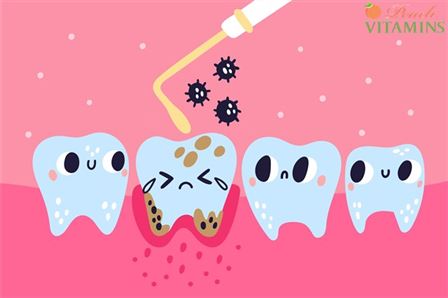
Conventional Treatment for TMJ – How Does it Work?
TMJ stands for Temporomandibular Joint Disorder. This condition affects the jaw joint, which connects the lower jawbone (mandible) to the skull. The symptoms include pain, stiffness, clicking sounds, popping noises, and difficulty chewing food.
There are two main types of treatment for this disorder: conventional treatments and Ayurveda. Conventional treatments include physical therapy, medication, and surgery. However, these methods may not be effective for everyone.
How Long Can Lockjaw Last?
Temporomandibular joint disorder (TMJ) is a condition that causes pain in the jaw area. There are two main types of TMJ disorders: internal derangement and degenerative arthritis. Internal derangements are caused by problems within the joints themselves, while degenerative arthritis occurs due to wear and tear over time.
Internal derangements usually result in locking of the jaw, causing discomfort and headaches. Degenerative arthritis can lead to similar symptoms, although it affects older patients. While both conditions can be treated effectively, it’s important to seek medical attention if you experience severe pain or swelling in the jaw.
While the exact length of recovery varies depending on the type of treatment used, it typically takes three months to recover completely after undergoing surgery. Patients who receive physical therapy tend to recover faster than those who undergo surgery.
It’s important to remember that the success of any treatment depends largely on the severity of the underlying issue. For example, if you suffer from a mild case of TMJ, then a course of physical therapy might be enough to resolve the problem. However, if you have a severe case of TMJ, you may require additional treatment options.
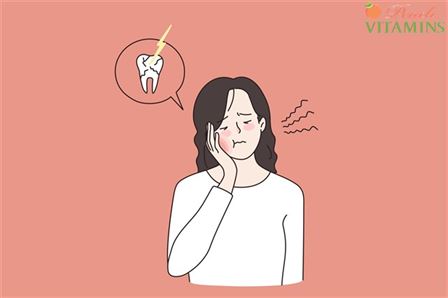
Ayurvedic Treatment Approach – Which Works Best?
Ayurveda is a traditional Indian system of medicine based on the principles of nature and balance. The Ayurvedic approach to treating a locked jaw focuses on restoring health and balance to the body through diet, exercise, meditation, and herbal remedies.
Ayurvedic treatment involves eating foods that help restore balance to the body. These include fruits, vegetables, whole grains, nuts, seeds, beans, lentils, herbs, spices, and oils.
Ayurveda also recommends regular exercise and meditation to improve overall well being. This includes yoga, tai chi, qi gong, and breathing exercises.
Ayurvedics believe that food affects our emotions and mental state. They recommend eating certain types of foods at specific times during the day to keep the mind balanced.
Finally, Ayurvedic treatments involve taking natural supplements and herbal medicines. Herbs used in Ayurvedic treatment include ginger, turmeric, cinnamon, black pepper, fenugreek, garlic, cardamom, clove, coriander, cumin, dill, fennel, mint, nutmeg, oregano, rosemary, saffron, sage, thyme, and vanilla.
Ayurvedas believes these herbs work together to heal the body and bring back its natural balance.
Chronic Pain – How to Deal with Chronic Headaches
Headaches and chronic pain are common ailments that affect millions of Americans every day. Chronic headaches and migraines often go untreated because many people believe these conditions are normal. But there are effective treatments available that can help relieve symptoms and improve quality of life.
Proper blood circulation is essential for healthy brain function. When blood flow to the head decreases, the brain becomes oxygen deprived, which leads to fatigue, dizziness, and even memory lapses.
The good news is that these problems can be eased by following a few simple lifestyle changes.
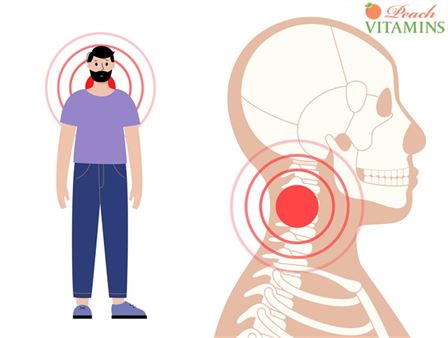
Jaw Pain – How To Stop Muscle Spasms
Jaw pain is a common problem among adults. The most common cause of jaw pain is TMJ (temporomandibular joint) disorder. This condition occurs when the jaw muscles become strained due to clenching teeth or grinding them together.
Other causes include bruxism, stress, arthritis, infection, injury, tooth decay, gum disease, or trauma.
If you suffer from chronic jaw pain, consult a dentist who specializes in oral health care. He or she may recommend physical therapy, acupuncture, or other treatments to relieve the symptoms.
Chewing Muscles – Can Stress Cause TMJ Symptoms?
Stress is a major cause of many health problems. From headaches to heart disease, stress causes us to be sick.
We’ve all heard stories of people who suffer from chronic pain because of stress. But did you know that stress can actually cause locked jaw symptoms?
If you’re stressed out, chances are your body goes into fight-or-flight mode. This means your muscles tense up, blood pressure rises, and breathing becomes shallow. Your brain signals your mouth and jaws to close tightly to protect your body from harm.
This clenching of teeth and jaw muscles can lead to soreness and stiffness in the face and neck area. Over time, this can lead to TMJ (temporomandibular joint) disorder, commonly known as “jaw lock.”
Fortunately, there are ways to relieve stress and prevent TMJ symptoms. One effective method is meditation. Meditation helps calm the mind and relax the body. It’s been shown to reduce stress hormones and help lower blood pressure.
Meditation also increases self-awareness and awareness of others. These two factors can help you identify when you’re feeling stressed and take steps to avoid locking your jaw.
Another great way to relieve stress is through yoga. Yoga teaches you to breathe deeply and slow down your thoughts. It calms the nervous system and reduces muscle tension.
Yoga also improves flexibility and balance. Both qualities help you maintain proper posture and avoid injury.
Finally, try eating healthy foods. Foods rich in omega-3 fatty acids, such as salmon, tuna, flaxseed oil, walnuts, and chia seeds, may help ease stress and prevent TMJ disorders.
Women are much more likely to be affected than men, the reason for which is still unknown.[1]
Source: ncbi.nlm.nih.gov
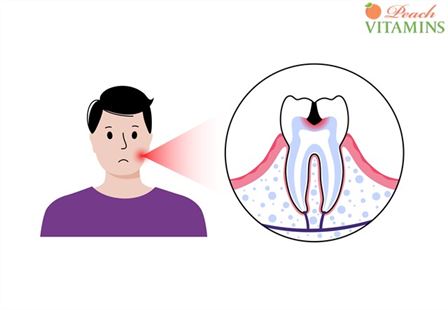
Physical Therapy for TMJ and Neck Pain
If left untreated, TMJ disorders may lead to headaches, neck pain, earaches, and difficulty chewing food. Physical therapy treatments include exercises, massage, and heat application. These therapies help loosen tight muscles and improve circulation.
One physical therapy treatment for TMJ disorders involves applying hot packs to the affected area. Hot packs are made of cloth soaked in warm water. They’re used to relax tense muscles and relieve muscle spasms.
Another physical therapy treatment for TMJs is trigger point injections. Trigger points are small knots of tissue that cause pain. Trigger point injections work by numbing the area where the knot is located. Once numb, the healthcare provider inserts a needle into the knot and injects local anesthesia.
There are many types of trigger point injections available. Some are injected directly into the trigger point, while others are injected into the muscle next to the trigger point.
Other physical therapy treatments for TMJ disorders include acupuncture, chiropractic care, and orthotics. Acupuncture works by stimulating nerves and promoting healing. Chiropractic care focuses on relieving pressure on joints and improving alignment. Orthotic devices correct misalignment of bones and teeth.
Up to 40% of patients report the remission of symptoms without any intervention,[26] and most patients have a favorable response to conservative treatment.[1] A small number of patients develop refractory or persistent TMD.
Source: ncbi.nlm.nih.gov
Behavioral Therapy – A New Approach to Treating Jaw Pain
If you suffer from TMJ, you may treat it naturally through Ayurveda. There are several ways to help relieve the pain associated with TMJ. One method is to use behavioral therapy. Behavioral therapy involves changing bad habits and replacing them with healthy ones.
This includes learning relaxation techniques and practicing them regularly. Another technique is to change your diet. Eating foods rich in calcium and magnesium helps reduce muscle tension and relaxes muscles.
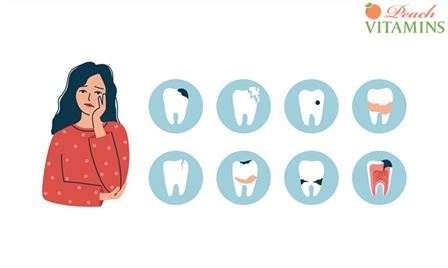
Ayurvedic Diagnosis – Who Should Be Using It?
Ayurvedics believe everyone should be individualized. They use a combination of herbs, oils, and dietary supplements to help patients achieve balance in their bodies.
Ayurvedically speaking, there are two types of locked jaw:
1. Locking of mandible because of trauma or injury. This type of locking occurs when the lower jawbone is fractured or dislocated.
2. Locking of mandibles due to degenerative changes in the temporomandibular joint (TMJ). This condition results in stiffness and inflammation of the joints.
Both types of locked jaws require immediate medical care.
If you suspect that you may have a locked jaw, seek a qualified Ayurvedic practitioner who can diagnose your condition and prescribe appropriate treatments.
Conventional Intervention
If left untreated, a locked jaw can lead to serious complications, including pain, swelling, difficulty chewing, speech problems, and loss of teeth. Conventional treatment includes surgery to remove bone fragments and/or implants to stabilize the jaw. However, this approach carries risks and may not be effective in some cases.
When seeking conventional intervention, it’s important to find a dentist who specializes in treating a locked jaw. This ensures that the correct procedures are performed and that any necessary equipment is used.
While conventional therapy is often successful, it’s important to seek complementary approaches when possible. Ayurveda provides safe, noninvasive alternatives that can help alleviate the discomfort associated with locked jaw.
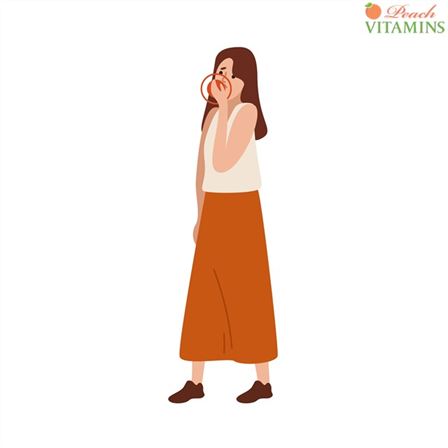
Ayurvedic Interventions – What Makes This Effective Right Now?
This approach makes sense because most diseases are caused by poor habits and unhealthy lifestyles. So when you’re sick, change your habits and live healthier to avoid getting sick again.
However, sometimes traditional remedies aren’t enough. Sometimes, illness requires medical intervention. And sometimes, Ayurvedic interventions work better than conventional medicine.
Here are some examples of Ayurvedic interventions that may help reduce pain and inflammation associated with TMJ disorders.
1. Herbal Remedies
Herbs are natural substances found in plants that provide health benefits. These include vitamins, minerals, amino acids, proteins, antioxidants, enzymes, fatty acids, and phytochemicals.
Many herbal remedies can help ease symptoms associated with TMJ. Some common herbs include turmeric, ginger, garlic, and black pepper. Herbs like these contain compounds called polyphenols that offer anti-inflammatory properties.
2. Oil Massage
Oil massage is another way to relieve pain, and stiffness associated with TMJ. The oil penetrates deep into the tissue to promote healing and improve circulation.
3. Yoga
Yoga has been shown to help increase flexibility and decrease stress levels. By reducing stress, yoga improves blood flow throughout the body. This means that muscles receive more oxygen and nutrients, which helps them heal faster.
4. Acupuncture
Acupuncture involves inserting fine needles into specific points on the body. It works best when combined with other therapies such as herbs, exercise, and massage.
5. Cranial Sacral Therapy (CST)
CST uses gentle pressure to release tension in the head and neck area. CST practitioners apply their hands directly over the cranium and sacrum, or lower back, to stimulate energy pathways. This treatment protocol restores balance between the brain and the rest of the body.
Ayurvedic Treatment for Locked Jaw: Final Thoughts
Ayurvedic treatment for locked jaw offers many advantages over conventional methods. First, it doesn’t require invasive surgery. Second, it’s less expensive than conventional options. Third, it’s safer since it relies on natural ingredients instead of chemicals. Finally, it addresses the root cause of disease rather than just masking its symptoms.
Getting proper treatment for temporomandibular disorders using Ayurvedic medicines can make a big difference in your life.
Schedule treatment sessions with Ayurvedic practitioner Cosmic Mike. His satisfactory treatment rates are proof of his ability to deliver effective results.
